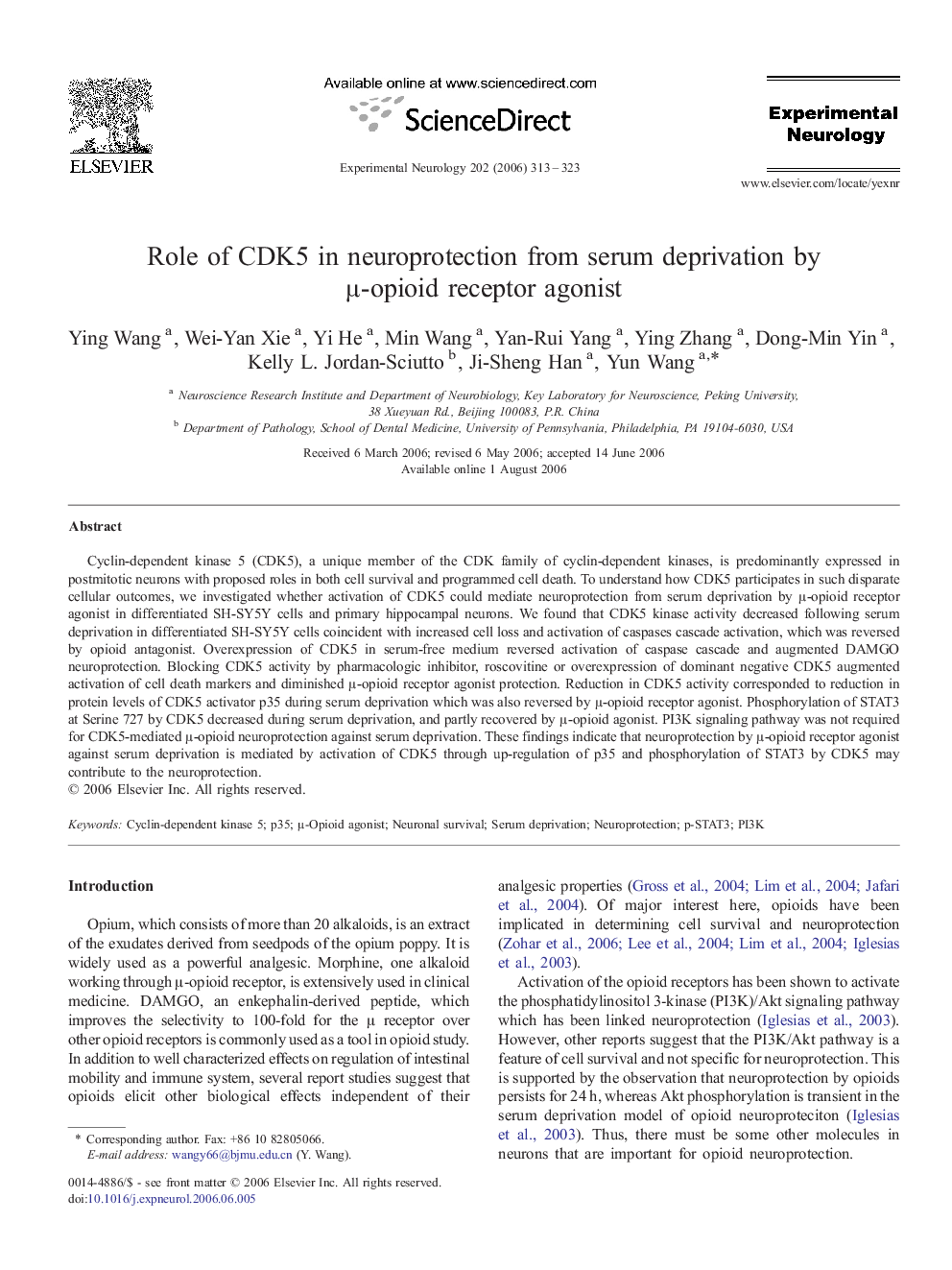| Article ID | Journal | Published Year | Pages | File Type |
|---|---|---|---|---|
| 3057257 | Experimental Neurology | 2006 | 11 Pages |
Cyclin-dependent kinase 5 (CDK5), a unique member of the CDK family of cyclin-dependent kinases, is predominantly expressed in postmitotic neurons with proposed roles in both cell survival and programmed cell death. To understand how CDK5 participates in such disparate cellular outcomes, we investigated whether activation of CDK5 could mediate neuroprotection from serum deprivation by μ-opioid receptor agonist in differentiated SH-SY5Y cells and primary hippocampal neurons. We found that CDK5 kinase activity decreased following serum deprivation in differentiated SH-SY5Y cells coincident with increased cell loss and activation of caspases cascade activation, which was reversed by opioid antagonist. Overexpression of CDK5 in serum-free medium reversed activation of caspase cascade and augmented DAMGO neuroprotection. Blocking CDK5 activity by pharmacologic inhibitor, roscovitine or overexpression of dominant negative CDK5 augmented activation of cell death markers and diminished μ-opioid receptor agonist protection. Reduction in CDK5 activity corresponded to reduction in protein levels of CDK5 activator p35 during serum deprivation which was also reversed by μ-opioid receptor agonist. Phosphorylation of STAT3 at Serine 727 by CDK5 decreased during serum deprivation, and partly recovered by μ-opioid agonist. PI3K signaling pathway was not required for CDK5-mediated μ-opioid neuroprotection against serum deprivation. These findings indicate that neuroprotection by μ-opioid receptor agonist against serum deprivation is mediated by activation of CDK5 through up-regulation of p35 and phosphorylation of STAT3 by CDK5 may contribute to the neuroprotection.
